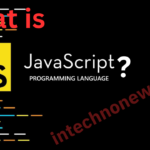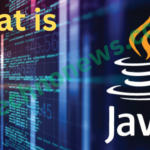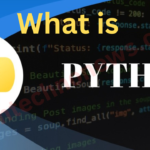Which Programming Language Should You Learn in the Future?
In the unique domain of mechanical progression, the predicament of figuring out which coding lingo to familiarize oneself with can end up being considerable. In the midst of the development of novel dialects and the transformation of existing ones, it becomes basic to participate in knowing thought with respect to the assignment of one’s transient and mental assets. Whether one winds up dug in the domain of prepared developers, trying to expand their collection of capabilities, or a beginner bringing speculative walks into the space of coding, the choice of an able semantic structure holds the possibility to impact the direction of one’s professional process significantly.
Here is a manual for assist you with exploring the labyrinth of programming dialects and settle on an educated decision for what’s in store:
-
Python:
Python stands tall as a supremely versatile and novice-welcoming tongue, its allure scaling ever higher across multifarious realms such as cyber creation, datum exploration, synthetic cognition, and mechanization.
-
JavaScript:
JavaScript, the most widely used language of the internet based world, stays a crucial capability for both front-end and full-stack engineers. As systems like Respond, Rakish, and Vue.js gain unmistakable quality, the meaning of JavaScript in the domain of computerized craftsmanship is ready to thrive considerably more.
-
Java:
Despite its longevity, Java endures as a foundational element in enterprise software engineering, mobile application creation (especially for Android), and the construction of expansive systems. Its durability, adaptability, and rich network of components render it a dependable selection for sustained professional advancement.
-
Swift/Kotlin:
Should your main focus be on sculpting mobile applications, delving into Swift for iOS app crafting and Kotlin for Android app construction holds significant merit. These languages showcase modern functionalities, bolstered security protocols, and seamless assimilation with their respective platforms
-
Rust:
Recognized for its focus on efficiency, security, and parallelism, Rust is garnering attention in fields such as system programming, interactive entertainment creation, and endeavors necessitating meticulous management at lower tiers while upholding memory integrity.
-
Go (Golang):
Fashioned by Google, Go is amassing renown due to its straightforwardness, concurrent capabilities, and effectiveness. It is aptly tailored for constructing expandable, high-capacity backend services and decentralized infrastructures.
-
SQL:
Amidst its departure from traditional coding tongues, SQL (Structured Query Language) emerges as a pivotal instrument for the manipulation of databases. With data increasingly steering decision-making processes across diverse sectors, proficiency in SQL remains profoundly esteemed.
In summary, selecting the appropriate programming language hinges on numerous considerations, encompassing your objectives, prevailing industry trajectories, adaptability, communal backing, and individual inclinations. By remaining abreast of developments, monitoring nascent technologies, and consistently enhancing your expertise, you’ll be primed to flourish in the ever-evolving realm of programming. Keep in mind, the pursuit of knowledge is perpetual, and embracing change is pivotal for forthcoming triumphs.














